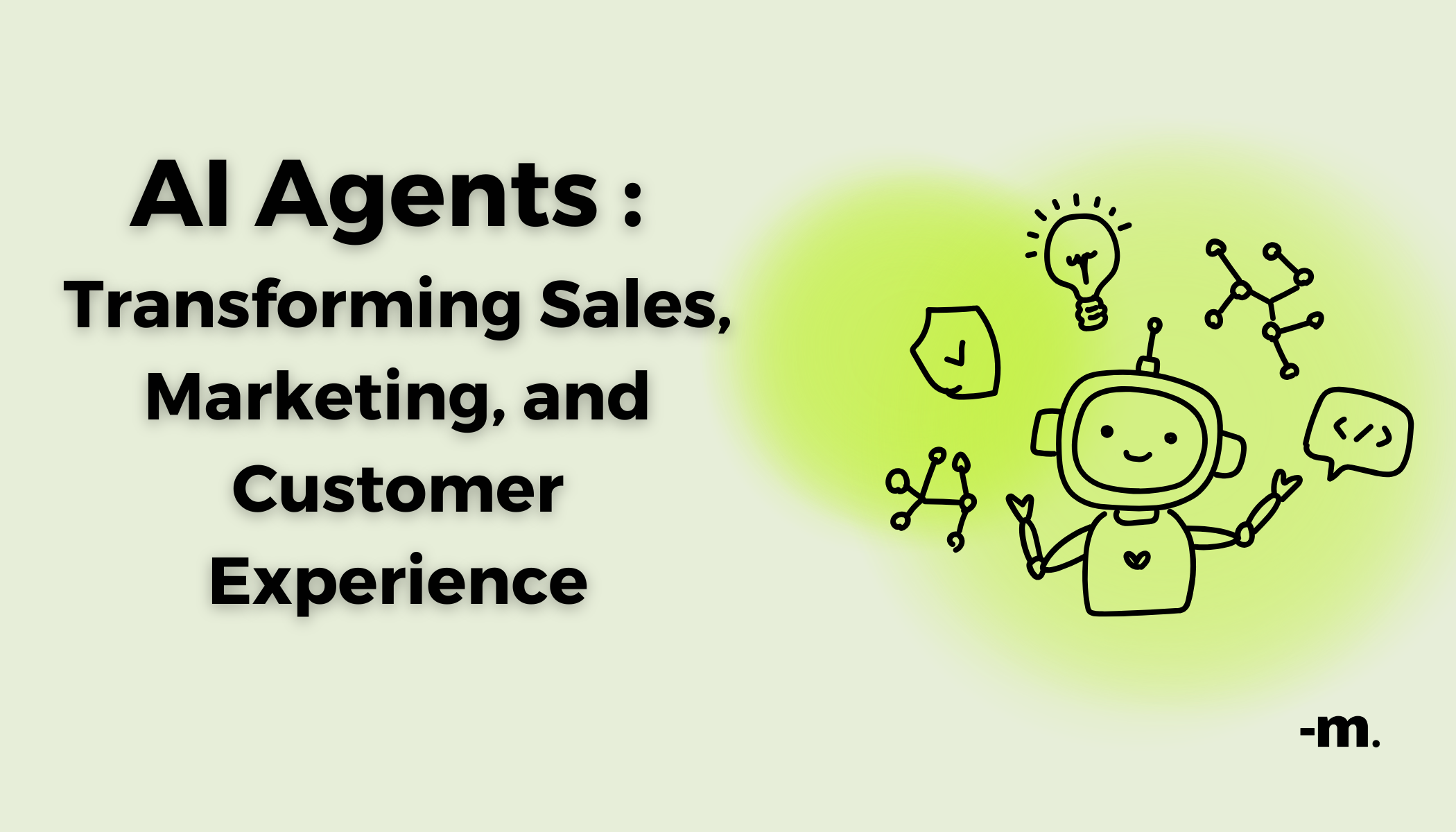12 Marketing Ideas That Won't Break The Bank
Marketing your business on a budget can be difficult, but it doesn’t have to be expensive. If you are looking for ways to market your business...
3 min read
Markezing Team : Sep 12, 2025 3:21:07 PM

Artificial Intelligence is quietly reshaping the way we live and work. We see it in everyday conveniences like Netflix recommendations, Siri reminders, and the voice recognition that unlocks our phones. But behind these familiar services lies a broader, more powerful idea: the AI agent.
Unlike rule-based automations that follow strict, pre-defined scripts, AI agents are systems that perceive their environment, make decisions, and act toward goals. They are designed not only to perform tasks but to adapt, learn, and optimize over time. If traditional automation was a robot arm assembling identical parts on a factory line, AI agents are like teammates that can adapt when the supply changes, the demand fluctuates, or the goals shift.
An AI agent works through a loop of perception, reasoning, action, and feedback. First it collects information, whether that is a data feed from sensors, a set of CRM records, or a customer’s email query. Then it interprets what the information means, weighing options or predictions. Based on that analysis, it chooses an action: sending a reply, updating a record, or executing a process. Finally, it observes the outcome and adjusts future behavior accordingly. This cycle repeats endlessly, allowing the agent to grow more effective over time. In this sense, AI agents are not static programs but dynamic systems—closer in nature to apprentices that keep improving with experience.
To better understand the landscape, it helps to classify different types of agents:
Simple reflex agents: react to immediate stimuli (like a thermostat).
Model-based agents: anticipate based on internal models (like self-driving cars).
Goal-based agents: plan multi-step actions to achieve objectives.
Utility-based agents: weigh trade-offs to maximize outcomes.
Learning agents: adapt and improve with experience.
The reason AI agents matter is not academic—they solve real business challenges. Organizations deploy them to scale repetitive work without needing to scale headcount, to reduce errors by handling data consistently, to personalize interactions in ways humans cannot manage at volume, and to ensure customers and prospects are never left waiting. Rather than replacing people, they take away the drudgery so humans can focus on strategy, creativity, and relationships.
Real-world applications make this concrete:
In customer service, agents power chatbots that resolve common questions instantly.
In sales and marketing, they qualify leads, draft personalized follow-ups, and optimize campaigns.
In healthcare, they monitor patients and flag anomalies.
In finance, they detect fraud and recommend investments.
In e-commerce, they drive product recommendations and manage promotions.
In manufacturing, they predict equipment failures before they happen.
Customer Relationship Management (CRM) is one of the clearest business examples. Anyone who has managed a pipeline knows the grind of chasing leads, updating records, and logging calls—tasks that are critical but time-consuming. Here, HubSpot AI Agents illustrate the promise of intelligent automation. Embedded directly into HubSpot’s CRM, these agents handle everyday sales, marketing, and service tasks: a Sales Agent can qualify a lead, send a follow-up, schedule a meeting link, and update the CRM without manual input; a Marketing Agent can generate campaign content, analyze engagement, and optimize future sends; a Service Agent can answer tickets instantly, provide knowledge base suggestions, and escalate only when necessary. They don’t replace sales or service teams—they amplify them, ensuring consistency and giving staff back valuable time.

The benefits are significant:
Faster response times: leads and customers receive instant engagement.
Personalized communication: interactions are tailored automatically.
Cleaner data: records update consistently, not sporadically.
Greater efficiency: teams reclaim hours from administrative work.
Scalability: businesses can grow without growing headcount at the same pace.
Compared with traditional automation, the contrast is stark. Old workflows rely on fixed rules that fail when exceptions arise. AI agents adapt dynamically. Automation covers isolated steps; agents orchestrate multi-stage objectives. Automation cannot learn; agents get smarter as they process more interactions. Automation struggles to personalize; agents excel at context. The shift is from machines that follow orders to digital colleagues that pursue goals.
Of course, adoption comes with challenges. Data quality is foundational—bad input means bad output. Bias can creep in if training data is skewed. Transparency matters; businesses must understand how and why agents make decisions. Over-reliance risks skill erosion. And integrating agents into existing systems can be complex. Responsible use means balancing autonomy with oversight and ensuring agents assist rather than dictate.
Looking forward, AI agents will become more autonomous, more collaborative, and more multimodal. In CRM, for example, future agents could act as “deal coaches,” offering real-time negotiation tips, or “predictive service agents,” spotting churn risk before it materializes. Multiple agents will work together across platforms, one analyzing data, another creating content, another optimizing distribution. They will become true digital teammates rather than separate tools.
AI agents are not just another piece of software; they represent a new model of work. They perceive, reason, act, and learn, making them adaptable partners rather than static tools. They are already transforming industries from healthcare to finance, and in platforms like HubSpot they are making sales, marketing, and service smarter and more efficient. For businesses, the question is no longer if they should adopt AI agents but how quickly. Those who start early will enjoy a decisive edge, while those who wait risk being left behind. By handing over routine work to AI agents, teams can focus on what humans do best: building trust, solving complex problems, and driving innovation.
-2.png)
Marketing your business on a budget can be difficult, but it doesn’t have to be expensive. If you are looking for ways to market your business...

Creating quality content is a critical part of any marketing strategy, but it can also be time-consuming and challenging. This is where the HubSpot...

Have you ever heard of “social selling?” It is an increasingly popular sales strategy that leverages social media to build relationships with...